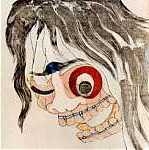| Hot Topics | |
|---|---|
Uh oh, Bill. You've offended Korea.
42 posts
• Page 2 of 2 • 1, 2
Re: Uh oh, Bill. You've offended Korea.
New challenge: try and think of an activity that wouldn't offend Korea.
I have a blog. Last update: August 18, 2013.
-

sublight - Posts: 1228
- Images: 5
- Joined: Sun Mar 07, 2004 5:15 pm
- Location: Basking by the Sumida
Re: Uh oh, Bill. You've offended Korea.
A California statue stirs passions in South Korea and ire in Japan
Earlier this month, a group of Japanese officials came to Glendale, Calif., with an unusual demand: They wanted the city to take down a public monument in the park next to its public library.
The bronze statue of a girl in traditional South Korean dress seated next to an empty chair is a memorial to the 70,000 to 200,000 Korean, Filipina, Chinese, Taiwanese, Indonesian and Dutch “comfort women” — a euphemism for sex slaves — conscripted into Japanese military brothels during World War II. It's the fourth memorial to the comfort women installed in the United States since 2010, and it aims to keep American focus on a history that many Japanese would rather forget.
“They were raped maybe 10 times a day. On weekends, as many as 40 to 50 times a day. The majority of them were teenagers,” says Phyllis Kim, who as part of Los Angeles' Korean-American Forum helped bring the statue to Glendale. “There are victims who are still alive, and waiting for an apology.”
Japan admitted the military's role in the brothels more than 20 years ago, and some victims were paid reparations from a private fund. But Japan has never offered an official apology or direct compensation to the victims, which many South Koreans, and Korean Americans, demand. Korean-Americans have been working for years to use US influence to put pressure on Japan to change its stance. Japan maintains it's done enough.
“Because of the ties between these two countries and because of the status of the United States on the world scene, what we think as Americans plays a role, and can have an impact on how Japanese react,” Kim says.
That's exactly what has some Japanese so angry.
“America is known as a fair country,” says Yoshiko Matsuura, a Tokyo city assemblywoman and the leader of the Japanese group that visited Glendale. “Why is it right to erect this kind of statue in America?”
Retired Japanese banker and Los Angeles resident Tomoyuki Sumori agrees.
“This is not the right place for them to wage this kind of anti-Japan propaganda,” he says. “Why do they do it in another country?'
Sumori is working to fight the memorials, in Glendale, and any other city that might consider putting one up. “I had to do something to preserve the integrity, honor and pride of our country,” he says.
The Korean American campaign to build municipal memorials to the comfort women has faced a Japanese counter-campaign to keep them out. Since the Glendale statue went up last summer, three delegations of politicians have come from Japan to complain. Glendale's city council has received thousands of angry emails, and its sister city in Japan canceled a student exchange program.
Palisades Park, N.J., the home of another memorial, has faced similar complaints from Japanese.
Kim sees an upside to the dust-up here. It’s getting media attention in Japan, too — and reminding people about what happened to the comfort women.
“A lot of people, I think, got a second chance to think about it,” she says. “Every German kid knows about the Holocaust. But the Japanese government just tries to downplay what happened.”
Continues
•I prefer liberty with danger to peace with slavery.•
-

Mike Oxlong - Posts: 6818
- Joined: Wed Oct 20, 2004 5:47 pm
- Location: 古き良き日本
Re: Uh oh, Bill. You've offended Korea.
I think Japan is clearly in the wrong on this.
The fact that they protest about this shows them in a very bad light.
Like it was OK to rape all those women...
The fact that they protest about this shows them in a very bad light.
Like it was OK to rape all those women...
“To learn who rules over you, simply find out who you are not allowed to criticize.”
“I know not with what weapons World War III will be fought, but World War IV will be fought with sticks and stones.” ― Albert Einstein
-

Russell - Maezumo
- Posts: 8580
- Images: 1
- Joined: Fri Aug 13, 2010 11:51 pm
Re: Uh oh, Bill. You've offended Korea.
Russell wrote:I think Japan is clearly in the wrong on this.
The fact that they protest about this shows them in a very bad light.
Like it was OK to rape all those women...
oh... they weren't raped, all those young children and girls going through beginning stages of puberty volunteered for it.
-

IparryU - Maezumo
- Posts: 4285
- Joined: Thu Jun 04, 2009 11:09 pm
- Location: Balls deep draining out
Re: Uh oh, Bill. You've offended Korea.
50 times a day, more than twice per hour for 24 h straight.
Sounds like a case of "make it sound bigger, it's for the good cause"
Not saying nothing happened, just that maybe both sides were a bit full of shit. Any STD stats for the surviving imperial army soldiers ?
Sounds like a case of "make it sound bigger, it's for the good cause"
Not saying nothing happened, just that maybe both sides were a bit full of shit. Any STD stats for the surviving imperial army soldiers ?
-

Coligny - Posts: 21822
- Images: 10
- Joined: Sat Jan 17, 2009 8:12 pm
- Location: Mostly big mouth and bad ideas...
Re: Uh oh, Bill. You've offended Korea.
Japanese protesting against comfort women statues in the US is like Germans protesting against the Holocaust museum in Washington D.C.
That's my whole point on why this shows Japan in a very bad light.
That's my whole point on why this shows Japan in a very bad light.
“To learn who rules over you, simply find out who you are not allowed to criticize.”
“I know not with what weapons World War III will be fought, but World War IV will be fought with sticks and stones.” ― Albert Einstein
-

Russell - Maezumo
- Posts: 8580
- Images: 1
- Joined: Fri Aug 13, 2010 11:51 pm
Re: Uh oh, Bill. You've offended Korea.
It is also very self defeating because every time someone Japanese denies it again, two things happen:
1. No-one believes their version and everyone just gets reminded of the issue.
2. Everyone gets reminded of a whole bunch of other highly unsavoury stuff.
1. No-one believes their version and everyone just gets reminded of the issue.
2. Everyone gets reminded of a whole bunch of other highly unsavoury stuff.
It is a tale told by an idiot, full of sound and fury, signifying nothing.
- Macbeth (Act 5, Scene 5)
William Shakespeare, April 1564 - May 3rd 1616
- Macbeth (Act 5, Scene 5)
William Shakespeare, April 1564 - May 3rd 1616
-

Wage Slave - Maezumo
- Posts: 3765
- Joined: Wed Aug 15, 2012 12:40 am
Re: Uh oh, Bill. You've offended Korea.
3. Makes them look highly likely to pull these shit again in case of war.
-

Coligny - Posts: 21822
- Images: 10
- Joined: Sat Jan 17, 2009 8:12 pm
- Location: Mostly big mouth and bad ideas...
Re: Uh oh, Bill. You've offended Korea.
Coligny wrote:3. Makes them look highly likely to pull these shit again in case of war.
Yea, yea and and thrice yea. With cherry on top:
3. Makes them look highly likely to pull these shit again in case of a new war started for honour.
It is a tale told by an idiot, full of sound and fury, signifying nothing.
- Macbeth (Act 5, Scene 5)
William Shakespeare, April 1564 - May 3rd 1616
- Macbeth (Act 5, Scene 5)
William Shakespeare, April 1564 - May 3rd 1616
-

Wage Slave - Maezumo
- Posts: 3765
- Joined: Wed Aug 15, 2012 12:40 am
Re: Uh oh, Bill. You've offended Korea.
To clarify a bit, as a 3.5:
Opponents to Japan in case of war might assume these kind of worst and act or punish preemptively.
Taste of their own medecine and all...
Just in case: latest extermination camp in Europe and massive systematic rape for 'ethnical purification' operated around 1995, 2 hours from Paris by plane.
Opponents to Japan in case of war might assume these kind of worst and act or punish preemptively.
Taste of their own medecine and all...
Just in case: latest extermination camp in Europe and massive systematic rape for 'ethnical purification' operated around 1995, 2 hours from Paris by plane.
-

Coligny - Posts: 21822
- Images: 10
- Joined: Sat Jan 17, 2009 8:12 pm
- Location: Mostly big mouth and bad ideas...
Re: Uh oh, Bill. You've offended Korea.
Russell wrote:Japanese protesting against comfort women statues in the US is like Germans protesting against the Holocaust museum in Washington D.C.
That's my whole point on why this shows Japan in a very bad light.
While I'd rather Koreans stop making these statues all over the place, I agree there is no way anyone can protest this and not look like a jackass. Friend is Korean American and his Japanese wife is one of the group protesting it. (he calls it her "imperial side" haha) ....but even he says he doesn't like it cause it's just another reminder of the shitty history between the two countries keeps being used to keep the hate going and more political in nature than a monument to the women conscripted.
-

matsuki - Posts: 16047
- Joined: Wed Feb 02, 2011 4:29 pm
- Location: All Aisu deserves a good bukkake
Re: Uh oh, Bill. You've offended Korea.
Well, looks like the statue is staying.
http://www.latimes.com/local/la-me-comf ... story.html
Meanwhile in Gunma:
http://www.theguardian.com/world/2014/j ... -labourers
A federal judge has dismissed a lawsuit filed against Glendale that sought the removal of a controversial statue installed in a city park to honor women coerced into sexual slavery by the Japanese Imperial Army during World War II.
The statue's opponents were unable to show that the 1,100-pound memorial caused them harm, and Glendale didn't break any laws by erecting it in Central Park in July 2013, according to a court order signed last week by U.S. District Court Judge Percy Anderson.
http://www.latimes.com/local/la-me-comf ... story.html
Meanwhile in Gunma:
ocal authorities in Japan have demanded the removal of a monument in memory of the tens of thousands of labourers forcibly recruited from the Korean peninsula during the second world war.
The monument, dedicated to Koreans who died after being brought to Japan to work in coalmines and factories amid a wartime labour shortage, was erected by a friendship society in a public park in 2004.
The government in Gunma prefecture, north-west of Tokyo, has ordered it removed after what the Asahi Shimbun newspaper described as petitions from "anti-Korean" groups and individuals complaining that it was anti-Japanese and had become the focus of political activity in a publicly owned space.
http://www.theguardian.com/world/2014/j ... -labourers
-

matsuki - Posts: 16047
- Joined: Wed Feb 02, 2011 4:29 pm
- Location: All Aisu deserves a good bukkake
42 posts
• Page 2 of 2 • 1, 2
Who is online
Users browsing this forum: No registered users and 6 guests

